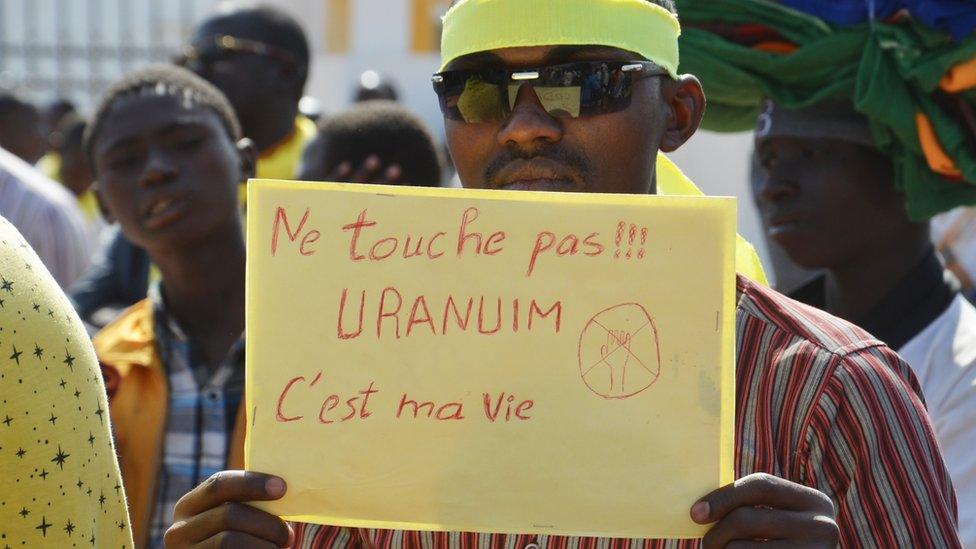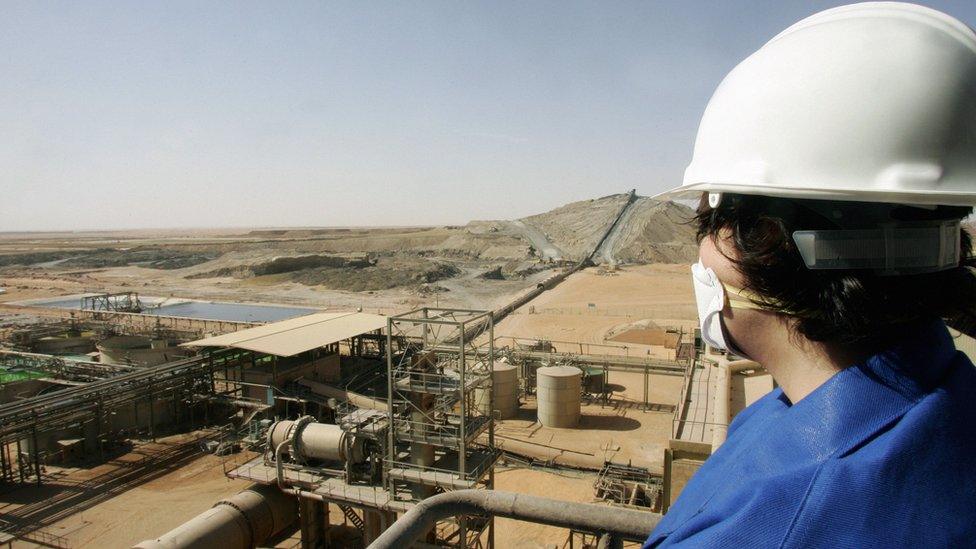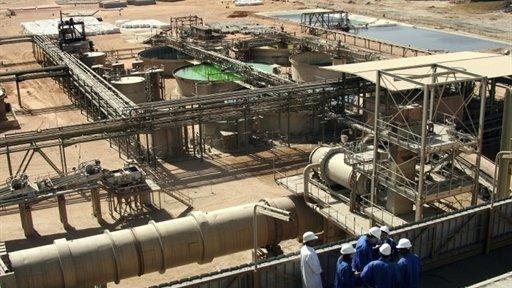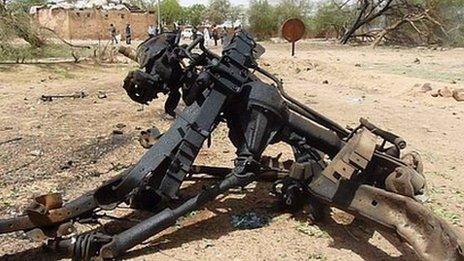Niger court action over 'fraudulent' uranium deal
- Published

Students and civil society activists in Niger believe they do not get a fair share from their country's uranium trade
Activists in Niger have started legal action into a uranium deal in which the country is said to have lost $3.25m.
The scandal, known as "uranium-gate", resulted from a 2011 transaction between French nuclear giant Areva and companies both in Niger and abroad.
There is also a French investigation into some of Areva's business dealings, with aspects related to this deal.
Areva has not commented on the legal case in Niger, but says it is cooperating in the French enquiry.
Niger is one of the biggest uranium producers in the world and the metal is the country's largest export.
Many people turned up on Friday morning outside the court in the capital, Niamey, as representatives of civil society movements arrived to register the court action, the BBC's Himadou Hamadou said.
Their complaint alleges embezzlement of public funds, money laundering, forgery and conspiracy to defraud.
The legal action centres on the allegation that Areva in 2011 bought a stock of uranium from Niger at a discounted price.

Niger is a leading uranium producer with nearly all of its output sold to Areva
Niger has two significant uranium mines that provides 7.5% of the world mining output from Africa's highest-grade uranium ores, according to the World Nuclear Association, the international organisation that represents the global nuclear industry.
Niger's first commercial uranium mine began operating in 1971, with a strong government support for expanding uranium mining.
- Published4 February 2013

- Published24 May 2013

- Published22 September 2010